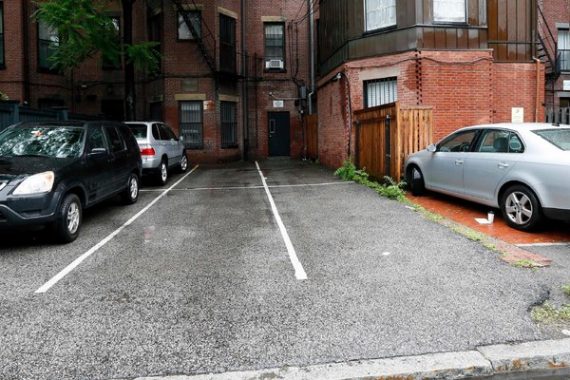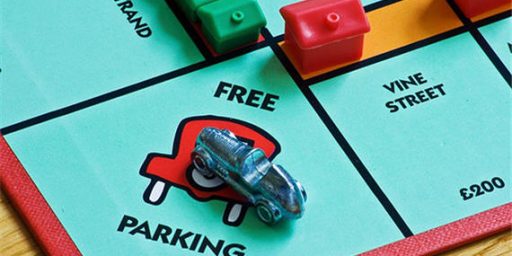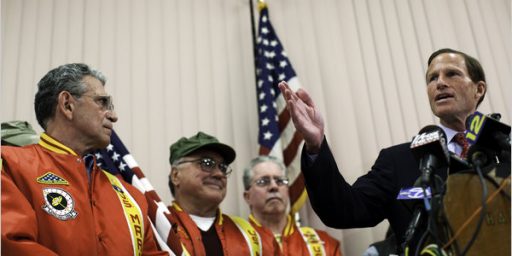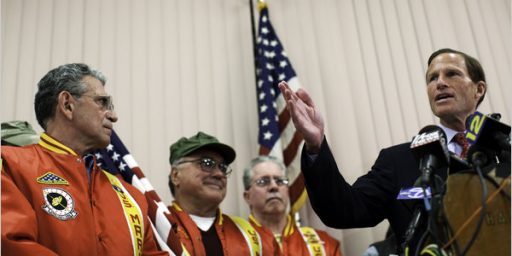Two Boston Parking Spaces Sell For $560,000
Are two parking spaces in Boston really worth $560,000? According to an auction earlier this week they are.
Everyone knows that parking is at a premium in most of America’s major cities, this is especially true in residential areas where street parking is generally the rule rather than the exception. One sign of just how high a premium is placed on parking space was demonstrated this week in Boston:
A slab of asphalt, a couple of white lines, it often comes as part and parcel of a home purchase without too much thought. But in cities like Boston, parking spaces are at a premium, and prices have been climbing for years. In certain neighborhoods, the price of a home can go up $100,000 or $200,000 if parking is included, which it often is not, only adding pressure to the supply and demand crunch that drives prices up further.
Jaws dropped in 2009 when someone paid $300,000 for a parking space, which was thought to be a record.
But now, even that has been shattered. At an auction on Thursday, the bidding for a tandem spot — space for two cars, one behind the other — started out at $42,000. It ended 15 minutes later at $560,000.
The spaces are behind 298 Commonwealth Avenue in the Back Bay, one of the costliest neighborhoods in the city.
“What we’ve seen is the meteoric rise of these prices as the professional class has moved into town,” said Steven Cohen, a Boston-based principal and broker at Keller Williams Realty International. “The Back Bay is almost on a par with Lower Manhattan and Switzerland.”
The winning bidder, Lisa Blumenthal, lives next door in a multimillion-dollar single-family home that already has three parking spots. She told The Boston Globe that the auction was a rare chance to acquire more parking for guests and workers, though she did not expect the bidding to run so high.
“It was a little more heated than I thought it would have been,” she said.
One reason that the price may have gone so high is the fact that this was an auction rather than ordinary sale. Title to the spaces had been seized by the IRS from a Boston man who owed in excess of $600,000 in back taxes. Under such circumstances, it’s not entirely surprising that the price would skyrocket under the heated atmosphere of an auction. One wonders, though, if Ms. Blumenthal will actually ever get her money back on this purchase. In an open market, it seems unlikely that she’ll ever be able to recoup her investment here, although its possible that a future real estate deal that includes the sale of two additional parking spaces could add some considerable value to her home if and when she sells it.
Some will look at this case and say that $560,000 is an “excessive” price for two parking places, however such an attitude falls into the all too common trap of misunderstanding how value, and supply and demand, work in a market economy. As noted above, off-street parking is in short supply in Boston. As a result, even people who have the means to pay for off-street parking are required to make a choice between parking their car(s) on the street and paying for the privilege of having an off-street, arguably more secure location to park in. Each person is going to value both sides of that equation differently. While you and I may think its insane to spend more than half a million dollars on what amount to two extra parking spaces, Ms. Blumenthal obviously does not. Otherwise, she wouldn’t have agreed to pay that amount in order to have the exclusive right to access to them. While you and I may consider her decision unwise, it’s actually neither a “right” nor a “wrong” decision. Since each person values things differently, what one person is willing to pay for something will always differ from what others are willing to pay. The free market, and specifically the price system, is simply the outward manifestation of the subjective valuations of millions of individuals. So, the answer to the question “are those parking spots really worth $560,000?” is that this is what they were worth to the purchaser. That’s all that matters.







I’ve read several places that the reason parking is so expensive in Boston is that Boston and Cambridge signed a consent decree with the EPA a number of years back that places a hard cap on the number of parking spaces that are allowed in the city. The current supply doesn’t meet the demand, but it’s literally illegal to build more parking garages, resulting in prices reaching ridiculous excesses like this.
Not surprising. I spent a lot of time in Tokyo and Yokohama. The majority of people can afford to own an automobile but don’t because they can’t afford a place to park it. Here in Portland Oregon as people have moved back to the inner city many have given up owning an automobile. Parking is at a premium and Portland does have a decent mass transit system. Those who live in the suburbs and work in the inner city also take mass transit as parking is very expensive. Isn’t it a bit ironic that the price of real estate, a parking place, may lead to the demise of the automobile more than the price of gasoline.
Only for those who want to live packed in like sardines under the constant state surveillance. Others will live out in the hinterlands enjoying space.
But more importantly, even those who live in the inner urban will still depend on the automobile, just not the personal automobile and the freedom it brings. Instead, they will rent or hire for personal needs and will ever increasingly become dependent upon the long stream of trucks and delivery vans.
And if disaster strikes, then they’ll find themselves stranded without the option to evacuate. Remember, those who depended on public transportation in New Orleans were left to die by the mayor and even the governor. Even those who would have been perfectly happy to ride a school bus rather than a luxury coach if it meant escaping the hell dense urban environments become when services falter even for a short while.
Some years ago when I bought an apartment in Europe while renting an apartment in the Boston area, I told people “it’s because I couldn’t even buy a parking space in Boston for what I paid for this apartment.” It seems that I was completely right.
I’ve lived in the sticks and in the city. I prefer the city mainly because there is a smaller percentage of pricks such as yourself in these parts. Sure, we have pricks such as yourself but your easier to spot and avoid in town. You all have signs like Nobama on your 73 Impalas.
That and good Thai delivery.
We also need to keep in mind that these parking spaces are in the most expensive part of Boston. The brownstones that line the streets of Back Bay (Commonwealth, Beacon, Newbury and Marlborough) routinely sell for 7-10 million bucks. Tacking on an extra half a mill won’t even make the prospective buyers of these places blink if it comes with two parking spaces.
There is a story, possibly apocryphal, of a transit-adverse businessman who drove to his Manhattan office every day but hated the high cost of parking, something like $30 a day. He then noticed a nearby garage* that charged $25 for an oil change. Upon inquiry, the garage owner told the businessman that customers could drop off their cars in the morning for an oil change, and retrieve them after work.
The businessman’s car ended up having the cleanest oil anywhere, in fact new oil every day 🙂
* = there aren’t many service garages in Midtown, which alas makes this story a bit suspect
@Davebo: Wow are we just a bit swelled of arrogance. To suggest that people who prefer open spaces are pricks and srive 73 impalas. I live in Texas and have my own drive way which is attached to my house does this make me a prick or does it make me a little smarter than you.
Just so I’m clear on this: All I need to do to purchase a parking space in Boston is to wire $560,000 to the Nigerian Consulate’s office?
@Robin: Obviously, he was making a statement towards one particular person, and not a generalization about all rural residents. Try reading for comprehension more, and jumping to conclusions less.
The More You Know…
@JKB:
Remember, those who depended on public transportation in New Orleans were left to die by the mayor and even the governor. Even those who would have been perfectly happy to ride a school bus rather than a luxury coach if it meant escaping the hell dense urban environments become when services falter even for a short while.
Now hold on there, Sparky.
I can tell you what I remember about hurricane Rita in 2005. I remember it well because my wife and I chose to ride it out at a friends house rather than deal with the 10+ hour traffic jam that extended for hundreds of miles that occurred on the official evacuation route.
A good friend of mine abandoned his car on the freeway and broke into a warehouse to seek shelter. The cops even showed up and basically told him “good luck.” It was madness; the jam is often considered as one the worst traffic jams in the world.
Just because one has a car and ample places to park it, doesn’t necessarily mean that one can get out of town on the fly during a disaster.
Cheers.
@PogueMahone:
Here’s some useful advice about evacuating an area in advance of a hurricane, drawing on lessons learned from Katrina and Rita:
http://bayourenaissanceman.blogspot.com/2008/08/lessons-learned-from-hurricanes-katrina.html
Based on those figures I could rent out an empty refrigerator box for $500 a month. I know of some beaches where I could get that the week of July 4th.